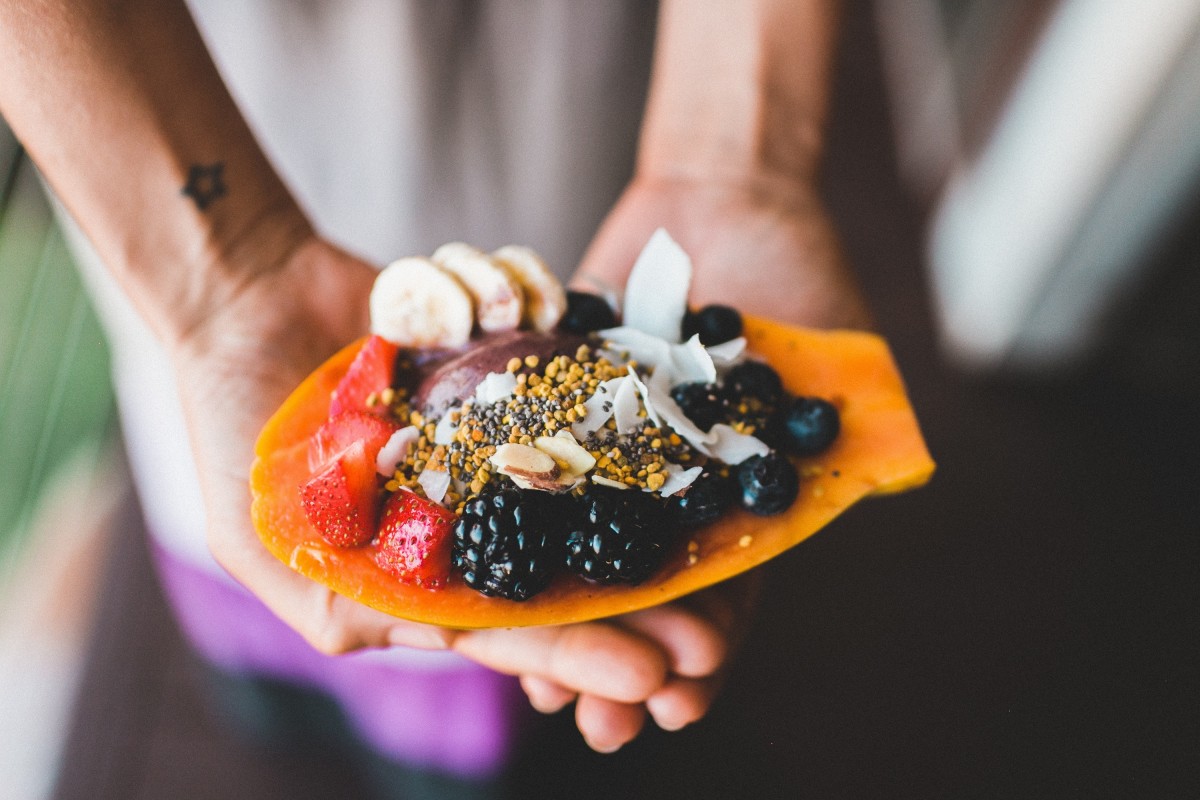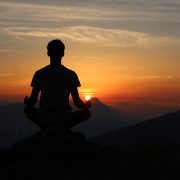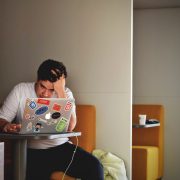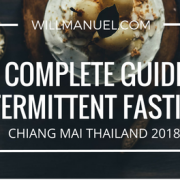I’d like to start by saying that Intermittent Fasting is one of the most profound practices I have incorporated into my life. It is single handedly what I attribute the enhancement of mental clarity, focus and a feeling of clear drive. Beyond that, there are many health benefits that sweeten the deal even more.
Trying to get a lil six pack going might have been part of it too but don’t judge.
Hey, if you look good you feel good right?
My experience with Intermittent Fasting
As an entrepreneur I constantly search for new ways to improve my mental performance, and my first encounter with fasting began in 2015 when I decided to cleanse and detox my body so that I could perform, feel, and look my best. Since that time, I have tried various types of fasts and cleanses, whether it be juice, water, or dry fast, and neither one of them worked as effectively as Intermittent Fasting has for me.
I believe Intermittent Fasting is by far the most lifestyle friendly and easiest to follow for longer periods of time.
The Summer of 2017 was my true breakthrough point, when I decided to experiment with IF as a way to test my health and athletic ability. I had an idea to create my own mobile application geared toward health and human performance, the predominant focus being Intermittent Fasting. I couldn’t promote something that I haven’t tried myself, so I went on a 22 day intermittent fasting regimen combined with HIIT (High Intensity Interval Training) and recorded my results each
day.
What I saw and even more so FELT, was incredible!
I LOVE INTERMITTENT FASTING!
I enjoyed the effects so much that I didn’t stop at day 22 and continued with this regimen. On day 30, I recorded a video about my experience with Intermittent Fasting during one of my walks. There you can find out more about how IF affected my body and mind.
Overview of Intermittent Fasting
“Breakfast is the most important meal of the day” is a mantra we’ve been hearing and repeating for ages. And we love our breakfast, so much that we could eat it all day, and in fact, we do.
More and more restaurants offer all day breakfast, but what if breakfast being the most important meal of the day, one that supplies your energy for the day ahead, was a myth? If you follow health and fitness trends, you’ve probably heard of the term Intermittent Fasting(IF). Many of us know very little about it, and shudder at the term “fasting”, as it is often
associated with starving yourself.
If you can already hear your stomach growling, as you imagine giving up your beloved pancakes and eggs, you can stop. What if I told you there is a way that you can still enjoy your favorite foods and not worry about putting on that unwanted weight, all while benefiting and extending your life?
The answer lies in changing your pattern of eating, and not in what or how much you eat, but rather WHEN you eat.
What is Intermittent Fasting?
Intermittent Fasting (IF for short) is essentially a form of restricted consumption of food/beverages in order to gain the most important benefits which I will outline below.
Intermittent fasting is a pattern of eating in which one fasts for a number of hours each day, and eats within the remaining hours. The day is divided into a “fasting period” and “eating period”. The usual ratio is 2:1, however, that can be changed based on preference.
What are the different types of Intermittent Fasting?
There are many different types/techniques when it comes to IF, the top two being a 24 hour fast, and 16/8 fast.
Some of the most common types of fasting are Daily and Periodic intermittent fasting. For example, daily intermittent fasting would take place over the course of 24 hours where you have a period of fasting and a smaller window of eating.
The 24-hour fast literally means not eating for an entire day… sounds scary right? No midnight snack, no chips, nothing of that sort. On the bright side, the following day you can indulge in all the foods your heart desires although you should really eat like an adult as a general rule of thumb 🙂
The second option is definitely easier to incorporate into your daily routine and it’s pretty simple. You fast for 16 hours and eat during the remaining 8 hours. The timing could be of your choosing, whether you elect to skip breakfast or dinner.
What is the science behind Intermittent Fasting?
When it comes to food, your body is in either of the two states, fed or fasted. In the fed state, your body is absorbing all the nutrients you just ate, and because sugar and carbs are the first to be absorbed, your insulin level goes up. Due to that, it is difficult for your body to burn the fat. Insulin is the hormone commonly known as the fat storage hormone.
The fasted state occurs approximately 12 hours after your last meal. During that period your insulin level goes down and your body turns to fat for energy. Since you are fasting for about 16 hours after your last meal, that is 4 hours of pure fat burning without doing anything!
Why should I try Intermittent Fasting?
1. Intermittent Fasting can keep you look and feel young
According to research, low calorie diets are proven to delay 犀利士
aging processes and aid in the prevention of diseases, such as cardiovascular disease as well as type 2 diabetes. If you limit your caloric intake each day, you reduce your insulin resistance, blood pressure, and lower your cholesterol. This results in a better and healthier you.
2. Intermittent Fasting can help you lose weight
Not only can Intermittent Fasting help you lose weight, it can also help you keep that weight off in the long run. How will it do that you may ask? Well, I’ve got a pretty simple explanation for you. Aside from what I mentioned above about your body turning to fat once your insulin levels go down, by cutting out a meal or two each day you are restricting your caloric intake even if the other meals are larger and higher in calories, thus resulting in weight loss. It also promotes higher sensitivity to insulin and increases the production of the human growth hormone (HGH). Incorporating Intermittent Fasting is easier than most conventional diets. It limits the amount of stress we put on ourselves when preparing our meals, feels less like a chore, and still allows us to enjoy our favorite meals without worrying about gaining those pounds back.
3. Intermittent Fasting promotes mental health and clarity
Most studies, human and non-human, have shown that Intermittent Fasting has enormous benefits for the brain and its processes. Some of the benefits include increased ability in learning and memory, mental clarity, growth of new neurons, prevents as well as aids in the treatment of disorders such as anxiety, and even depression.
What are the benefits of Intermittent Fasting?
So the buzzing question really is… what will Intermittent Fasting do for me? Well, luckily there are a whole slew of benefits to mention.
When you fast some important things happen:
- Your cells repair themselves (through autophagy)
- Your insulin sensitivity can increase (decreases insulin resistance)
- Your HGH (Human Growth Hormone) can increase
- Your blood sugar levels may decrease
- Your body will have less oxidative stress and inflammation
- Your brain benefits with more clarity and focus
- Your belly fat can decrease significantly
- Overall Weight Loss can also occur with better insulin sensitivity
- Slows down aging (increased HGH to look and feel younger)
- Radically improves metabolism
- Increase in brain function (BDNF)
- Increased immunity
- Better digestion/absorption of nutrients
- Boosts mood
- Reduction in anxiety
- Easy to adhere to
What can I have during my fasting window?
What I consume during my period of fasting is pretty simple: black coffee, green tea and water.
If I feel really hungry, I use the coffee (either an americano or espresso) to suppress my appetite a bit followed by 8-16 ounces of water (coffee is a diuretic and can dehydrate you quickly). I also will sometimes have an espresso just before the gym as it gives me a little extra spark to push me through my toughest workouts.
It is generally accepted that anything less than 15 calories will not break your fast and some people consume no calorie drinks. I personally don’t dance around this too much as my thought process is this; Why even risk the benefits of fasting for a tiny bit of calories that will more than likely make you crave more calories anyways? When in doubt, go without.
24 Hour Fasting Benefits
If the 16/8 protocol is something you’ve mastered and you want to give something else a try, 24 Hour Fasting could be the next step. Along with the many benefits as the standard fasts, the biggest benefit in my opinion is Time Saved!
The overlooked benefit 24-hour fasting benefits is the added time it puts back into your day. Making multiple meals and snacks every day is time-consuming. Even if you go to a restaurant or go with a prepared meal, the act of dining wastes time. Fasting allows you more time to focus on things that are important to you, such as family/friends, fitness, meditation, yoga and so on.
A Harvard study also documented that intermittent fasting (including 24-hour fasts) can actually increase your lifespan.
Intermittent Fasting Resources
Have you tried Intermittent Fasting before? If so, let me know in the comments how it went for you!











